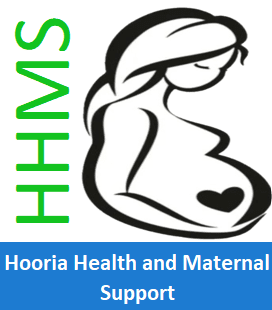How to Travel While Pregnant: Tips & Safety Guide

Posted on October 20th, 2025
Introduction: Traveling While Expecting, Yes, You Can
Whether you’re visiting family, taking a work trip, or sneaking in a babymoon before your little one arrives, travel during pregnancy can be safe and enjoyable, with a little preparation.
At Hooria Health and Maternal Support, we remind mothers that comfort, hydration, and planning are the keys to a smooth journey. With the right precautions and support, you can travel confidently while keeping both you and your baby safe.
1. Check in With Your Healthcare Provider First
Before booking your trip, talk with your doctor or midwife about your travel plans. They’ll help you decide if it’s safe to travel based on your:
• Trimester and due date
• Medical history or pregnancy complications
• Travel distance and destination
• Access to healthcare while away
Most women can travel safely up until about 36 weeks, but every pregnancy is unique, so it’s always best to check first.
2. Know the Best Time to Travel
The second trimester (weeks 14–28) is often the ideal window for travel. By this stage:
• Morning sickness has usually eased up.
• Energy levels are higher.
• The risk of complications like miscarriage or preterm labor is lower.
You’ll also be more comfortable sitting for longer periods and exploring without as much fatigue.
3. Tips for Air Travel
Flying while pregnant is generally safe, especially before 36 weeks. Here’s how to make it more comfortable and secure:
• Book an aisle seat to move around easily.
• Get up and walk every hour to improve circulation.
• Wear compression socks to prevent swelling.
• Stay hydrated; airplanes are dehydrating.
• Buckle low across your hips, not your belly.
• Bring healthy snacks to maintain blood sugar levels.
If you’re flying internationally, research local healthcare access and make sure you have travel insurance that covers pregnancy-related care.
4. Road Trips and Long Drives
If you’re driving or riding long distances:
• Stop every 1–2 hours to stretch your legs and use the restroom.
• Keep snacks and water nearby.
• Adjust your seat so the seatbelt fits under your belly and across your chest, not directly over your stomach.
• Avoid driving if you feel fatigued, dizzy, or have leg cramps.
Long car rides can increase swelling in the feet or ankles, so gentle movement and hydration make a big difference.
5. Train and Bus Travel
Train and bus travel can be less restrictive, but remember:
• Bring extra support (pillows, lumbar cushions, or neck rests).
• Pack healthy food in case options are limited.
• Plan ahead for bathroom breaks and stops.
Try to sit near exits or restrooms for convenience, and don’t hesitate to ask for assistance when boarding or carrying bags.
6. Packing Essentials for Pregnant Travelers
Here’s what to pack for comfort and peace of mind:
• Prenatal vitamins and any prescribed medications
• Medical documents and emergency contact information
• Water bottle and light, nourishing snacks
• Maternity pillow or neck support
• Comfortable shoes and breathable clothing
• Copies of your medical insurance and prenatal records
Optional but helpful:
• A small cooling fan, compression socks, and a light blanket for extra comfort.
7. Stay Hydrated, Nourished, and Rested
Pregnant women need more water than usual, especially while traveling. Dehydration can cause headaches or early contractions. Keep sipping water throughout your trip and choose light, balanced meals that are easy on digestion.
Pro Tip: Avoid skipping meals or overloading on salty foods that can cause bloating and discomfort.
8. Listen to Your Body and Take Breaks
Pregnancy changes your stamina. You may feel more tired or lightheaded than usual, so give yourself permission to rest.
Take breaks when walking, stretch gently during long rides, and avoid over-scheduling activities. If your body says stop, listen; it’s not weakness, it’s wisdom.
9. When Not to Travel
Avoid travel if you’re experiencing:
• High blood pressure or preeclampsia
• Preterm labor symptoms
• Vaginal bleeding or fluid leakage
• Severe swelling or headaches
• Medical advice against travel
If you ever feel uncertain, consult your healthcare provider before departing.
10. Cultural and Emotional Comfort While Traveling
Pregnancy isn’t just physical, it’s emotional and spiritual, too. Bring items that bring you peace and connection: a prayer cloth, a family photo, favorite music, or a small reminder of home. At Hooria Health and Maternal Support, we know that feeling grounded in your culture and faith brings calm and confidence wherever you are.
Final Thoughts: Journey with Care and Confidence
Traveling while pregnant doesn’t have to be stressful; with mindfulness and preparation, it can be empowering. You deserve comfort, safety, and joy in every part of this journey.
If you’re planning to travel and want guidance on prenatal health, preparation, or safety tips, reach out to Hooria Health and Maternal Support. Our team provides compassionate, culturally informed guidance to help mothers travel with confidence, before and after birth.
Contact Hooria Health and Maternal Support today to start a conversation about safe, supported pregnancy travel.
Contact Us
Reach Out Today
Explore our caring maternal health solutions designed for you. Connect with our team today and begin a journey towards empowerment and support for you and your family.
